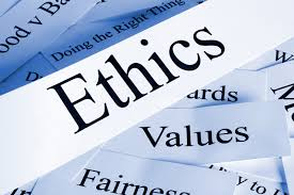Ethical Principles

ETHICAL PRINCIPLES
The therapeutic practice has to follow the ethical principles of the Danish Psychotherapeutic Association (http://psykoterapeutforeningen.dk/vedtaegter-og-regler/foreningens-etikregler ), the European Association for Psychotherapy (EAP) and The Association of Christian Counselors
http://www.acc-uk.org/public/docs/page-pdfs/EandPractice.pdf
.
Click here for the lint to the EAP (European Association for Psychotherapy):
These principles and their dilemmas will be taught explicitly in the subject Ethics and implicitly within the whole atmosphere of the school. Internally, instead of having a ruling for every conceivable circumstance we set a framework within which we can measure judgments about the appropriateness of action or inaction.
However, we want to stress certain specific ethical principles:
Within the school setting we have lecturers, staff and students. In this school setting the students are not clients. The students must not become a mixture of being a student and a client at the same time.
Code of Ethics Regarding the Lecturers and Staff Concerning the Students:
- The IPSICC lecturers cannot have any student in therapy
- The IPSICC lecturers can in special cases do crisis counseling
- The IPSICC lecturers and staff can only hold two tasks during IPSICC weeks except in very special cases. They can hold a task as
- Worship leader
- Crisis counselor
- Supporter for first or second year
- Bible teaching the whole week
- Hostess
- Technical manager
- Finances manager
- The IPSICC psychotherapists who give crisis counseling during school days cannot give crisis counseling to the students who are their clients outside school days
- It is forbidden for lecturers and staff to contact the students to have them as clients. IPSICC psychotherapists´ names will be on the website, and the students as well as others can then choose.
Ethics of social media
- Internal use: Photos, videos and films taken during the school times must never be made public in any form. When students have given their consent to have Memories shown at Celebration Night these memories may be put in the closed Student Area on the IPSICC homepage. This material is private and can never be made public.
- External uses: We can tape and/or photograph people and programs for public use or give permission for a TV interview on the condition that lecturer(s) and pupils have given their consent beforehand. Every time any of this kind of material be made public, it is necessary to get permission from anyone who is involved in it.
These principles and their dilemmas will be taught explicitly in the subject Ethics and implicitly within the whole atmosphere of the school. Internally, instead of having a ruling for every conceivable circumstance we set a framework within which we can measure judgments about the appropriateness of action or inaction.
Requirements for IPSICC supervisors
Supervision has to be received from a certified psychotherapist MPF who has worked for at least 3 years in the trauma area after their certification.
Supervisors from other professional backgrounds than certified psychotherapists MPF can after a concrete assessment be accepted, if the supervision is given within the professional area of the supervisor.
Supervision received from family members or partner cannot be accepted.
Requirements for IPSICC graduated psychotherapists if they want to supervise IPSICC students:
- Minimum 3 years’ work experience after receiving their IPSICC Graduate Certificate.
- They will need to have a minimum of 500 hours client work
- They will need to have 160 supervision hours on their own client work, a mixture of group supervision and individual supervision:Minimum 60 individual supervision hours and 60 group supervision hours.
Contact lecturers
Contact lecturers cannot supervise their students, and therefore these students can decide to have a new contact teacher if they wish to have their original contact teacher as their supervisor.
Complaints
If local internal procedures do not resolve matters, ethical matters concerning an educational institution can be raised in the ethics committee of The Danish Psychotherapeutic Association. The decisions of the ethics committee are binding on the educational institution and staff no matter whether they are members or not. In the handling of complaints the complaints are dealt with according to the ethical principles of the Danish Psychotherapeutic Association, supplemented by the psychotherapeutic school’s own rules. If the association and the psychotherapeutic school’s ethics rules are conflicting or different from each other the Danish Psychotherapist Association’s ethics rules prevail over the psychotherapeutic school’s ethics rules.
The investigation of a case may result in the following findings:
- The complaint is unfounded.
- The case cannot be investigated because of lack of verification.
- The complaint gives rise to critique of the management of the school
- The complaint gives rise to order the school to impose professional actions in relation to leadership, education or group of teachers.
- The complaint gives rise to advise the board that a teacher or an education leader is to be removed from the education.
- The complaint gives rise to advise the board that the education is removed from the website of The Danish Psychotherapeutic Association and that the education does not entitle admission to the association.
The ethical committee determines its own rules of procedure including how to carry out a complaint and how to announce a decision